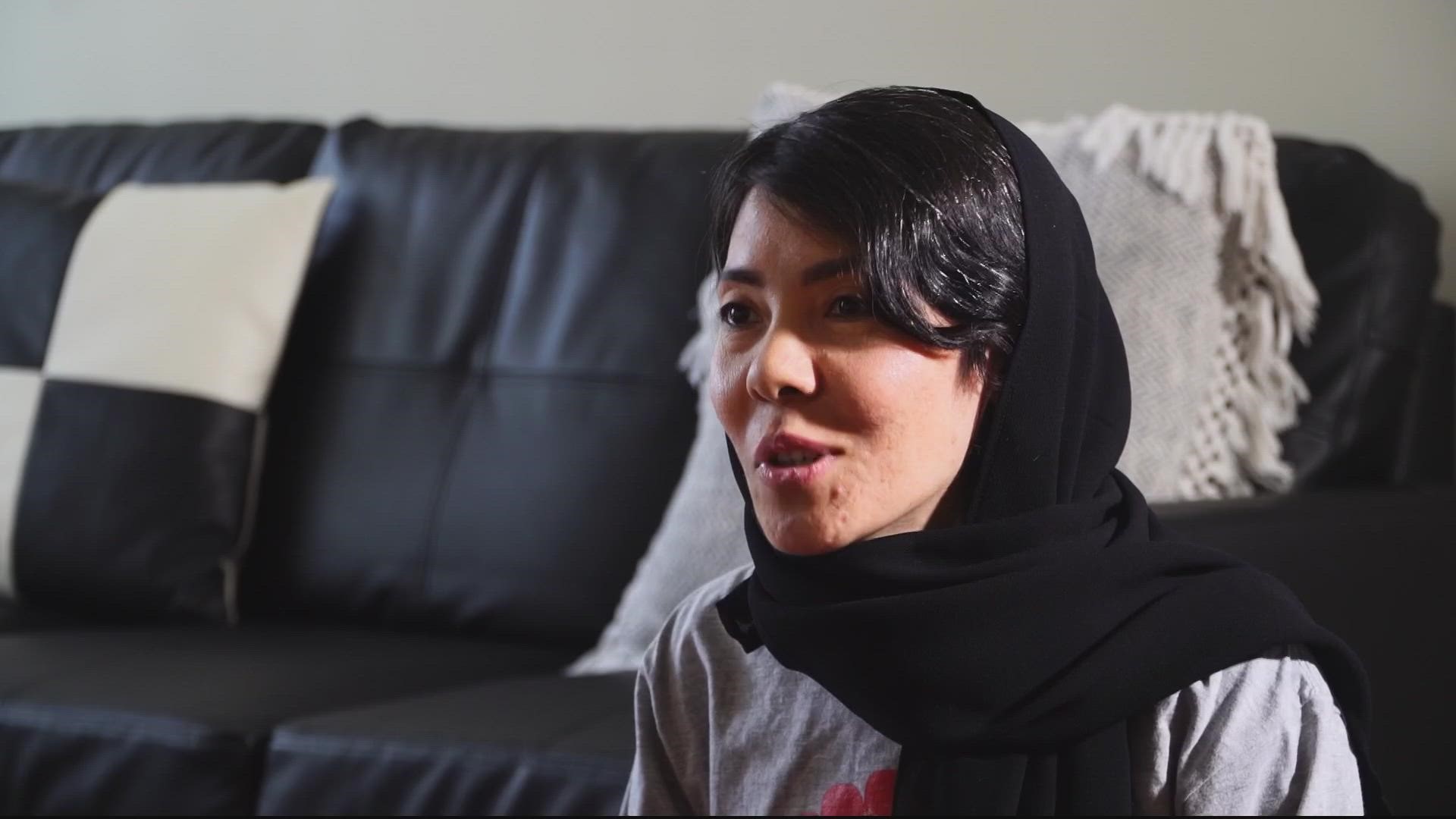SILVER SPRING, Md. — Who can forget the horrifying images from the fall of Kabul a year and a half ago? Huge crowds lined up at the airport to get out of Afghanistan, with people clinging to an American plane trying to escape.
Among them were members of a little-known group of Afghan women who had fought shoulder-to-shoulder with American troops.
In a sparsely furnished Silver Spring apartment, Mahnaz Akbari greets visitors with a gentle smile and a warm cup of saffron tea.
"I joined the military because it was always my dream," she said.
Akbari was the commander of a trailblazing unit of Afghan women who defied the Taliban. Created and trained by U.S. Special Forces, the formidable Female Tactical Platoon conducted midnight raids side-by-side with American Navy Seals and Army Rangers.
In a country where most women can’t leave home without a male escort, the Female Tactical Platoon did things no man could do, including searching, questioning and detaining other women and girls.
Akbari remembers a 13-year-old Afghan girl she encountered on a recon mission.
"She asked me, ‘Are you female?’ And I remember she became so happy because it was the first time she saw a female with a uniform, and weapon, and night vision," Akbari recalled with a smile.
Former Army Sergeant Rebekah Edmondson -- a small, powerful woman with tattoos and a fierce intensity -- has been focused on helping the women she once served as a liaison to U.S. forces in Afghanistan.
"Hello, how are you? Nice to meet you," Akbari says as she opens the door of her apartment and greets Edmondson with a big hug and something clearly lost in translation, as Akbari has known her for years.
Edmonson has no doubt that without the help of those woman, many Americans would have died.
In the chaos as Kabul fell, Edmondson and her colleagues struggled to get the team members on a plane out.
"If there was an attack or shooting, our hearts would just sink, because what if it was one of them and what if they don’t make it out of there," Akbari said. "Thirty-nine members did get out, but more than 20 are still in hiding in Afghanistan."
Akbari said she is constantly worried about them.
"They may be in jail, they may be dead, we don't know," Akbari said, clearly anguished at the thought.
"Being totally blunt, I don’t know that I expect to see them again," former soldier Edmondson said, pausing for a second to collect herself.
Akbari and her comrades-in-arms are all but certain to face the most severe retribution should they be forced to return to Afghanistan. But their future here in the U.S. is far from secure.
The women of the Female Tactical Platoon, and about 70,000 other Afghan refugees, were granted humanitarian parole to enter the U.S. But that status expires in August.
Edmondson said she and her fellow vets will fight to the end to keep them from being deported.
"If that happened, there would be an all-out mutiny," she said. "There’s absolutely no way. It would be like, over our dead bodies. We would handcuff ourselves to these women to ensure they never left the country."
The bipartisan Afghan Adjustment Act, which would expand the Special Immigrant Visa Process for Afghans who served alongside U.S. service members, stalled in Congress last year, largely because of the objections of Charles Grassley, the ranking Republican on the Senate Judiciary Committee, who worried about security screening lapses.
Edmondson said the women were "were probably the most vetted" refugees ever.
"They were actually going out on missions, risking their lives, being shot at, some shot," she said. "Why on earth wouldn’t the Female Tactical Platoon be deserving?"
"We lost our country," Akbari added.
She said she cries about it every day.
"Afghans who were admitted on temporary humanitarian status can only gain permanent legal status through the asylum system or Special Immigrant Visa process (SIV), which both face severe backlogs and long processing times," according to a statement from the office of Sen. Chris Coons, the lead sponsor of the Afghan Adjustment Act.
The women only hope a public outcry will force Congress to let them stay in the country they’ve adopted. They've been getting help from the PenFed Foundation. They're planning two days of lobbying lawmakers on Capitol Hill on April 26 and April 27 to pass the Afghan Adjustment Act.
The PenFed Foundation is flying as many members of the FTP in for that from around the country as it can. The Iraq and Afghanistan Veterans of America or IAVA is also helping Afghan refugees.
If you want to help, you can contact your member of Congress or either of those organizations.

